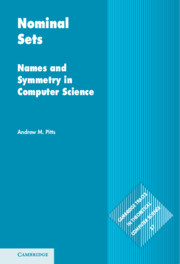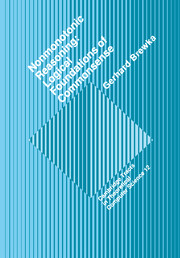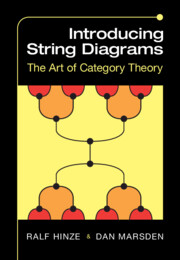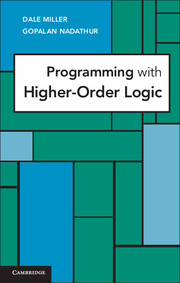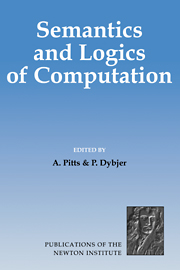Nominal Sets
Names and Symmetry in Computer Science
$69.99 (C)
Part of Cambridge Tracts in Theoretical Computer Science
- Author: Andrew M. Pitts, University of Cambridge
- Date Published: July 2013
- availability: Available
- format: Hardback
- isbn: 9781107017788
$
69.99
(C)
Hardback
Other available formats:
eBook
Looking for an examination copy?
This title is not currently available for examination. However, if you are interested in the title for your course we can consider offering an examination copy. To register your interest please contact [email protected] providing details of the course you are teaching.
-
Nominal sets provide a promising new mathematical analysis of names in formal languages based upon symmetry, with many applications to the syntax and semantics of programming language constructs that involve binding, or localising names. Part I provides an introduction to the basic theory of nominal sets. In Part II, the author surveys some of the applications that have developed in programming language semantics (both operational and denotational), functional programming and logic programming. As the first book to give a detailed account of the theory of nominal sets, it will be welcomed by researchers and graduate students in theoretical computer science.
Read more- The first book-length account of this exciting new topic
- Authored by one of the pioneers of nominal sets
- Prerequisites are basic, with some mathematical background provided
Customer reviews
Not yet reviewed
Be the first to review
Review was not posted due to profanity
×Product details
- Date Published: July 2013
- format: Hardback
- isbn: 9781107017788
- length: 287 pages
- dimensions: 235 x 156 x 20 mm
- weight: 0.55kg
- contains: 20 b/w illus. 80 exercises
- availability: Available
Table of Contents
Preface
Introduction
Part I. Theory:
1. Permutation
2. Support
3. Freshness
4. Name abstraction
5. Orbit finiteness
6. Equivalents of Nom
Part II. Applications:
7. Inductive and conductive definitions
8. Nominal algebraic data types
9. Locally scoped names
10. Functional programming
11. Domain theory
12. Computational logic
References
Notation index
Index.-
General Resources
Find resources associated with this title
Type Name Unlocked * Format Size Showing of
This title is supported by one or more locked resources. Access to locked resources is granted exclusively by Cambridge University Press to instructors whose faculty status has been verified. To gain access to locked resources, instructors should sign in to or register for a Cambridge user account.
Please use locked resources responsibly and exercise your professional discretion when choosing how you share these materials with your students. Other instructors may wish to use locked resources for assessment purposes and their usefulness is undermined when the source files (for example, solution manuals or test banks) are shared online or via social networks.
Supplementary resources are subject to copyright. Instructors are permitted to view, print or download these resources for use in their teaching, but may not change them or use them for commercial gain.
If you are having problems accessing these resources please contact [email protected].
Sorry, this resource is locked
Please register or sign in to request access. If you are having problems accessing these resources please email [email protected]
Register Sign in» Proceed
You are now leaving the Cambridge University Press website. Your eBook purchase and download will be completed by our partner www.ebooks.com. Please see the permission section of the www.ebooks.com catalogue page for details of the print & copy limits on our eBooks.
Continue ×Are you sure you want to delete your account?
This cannot be undone.
Thank you for your feedback which will help us improve our service.
If you requested a response, we will make sure to get back to you shortly.
×
